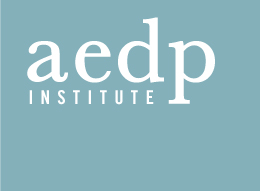Please select the blue "View & Purchase" button below next to the event you wish to attend.
Course Information

Healing Relational Trauma 2: Therapist Metaskills to guide treatment with each attachment style
This workshop will focus on how therapists can better attune and resonate with patients, helping them to be seen and heard, aiming to set the conditions to establish a secure base in which our patient’s self-at-best can arise. Sometimes the patient’s attachment strategy can challenge the therapist’s capacity to be present, responsive, attuned and empathic. Clinicians often ask “Who is better suited to work with whom in terms of matching attachment styles?” I want to propose that it is not actually the patient’s attachment style itself that challenges therapists to feel inadequate or unable to empathize or triggers our self-at-worst attachment strategy. Rather, my reaction to the specific behavior that is manifesting in the moment is what drives me outside of my capacity to respond with the help that is needed. This workshop is about expanding the clinician’s capacity to respond moment-to-moment by deepening understanding about what is going on with whom and how to tailor the therapist’s stance with respect to patient’s distinctive attachment strategies.
This workshop will identify classic blind spots that get elicited by specific aspects of each attachment strategy. We will break down the configuration of each attachment style into its affect regulation strategies and defenses, caregiver hallmarks and the subsequent relational attitudes and patterning, and the seeds of resilience. Video of psychotherapy sessions will also be shown to illustrate the interplay of how these strategies can be further depicted on AEDP’s representational schemas and how we can intervene experientially to engage positive neuroplasticity. I will also describe the way therapists can use specific metaskills to address the impact of relational trauma that drive self-at-worst insecure attachment strategies. Metaskills is a term used by Amy Mindell (1995, 2002) to describe the background feeling attitudes and qualities therapists display that can be used in service of the patient’s therapy. AEDP’s interventions about making the implicit explicit and making the explicit relational can be helpful to apply with specificity to each attachment style. The aim of this workshop is to move towards establishing a base of connection through which our patient’s self-at-best can be engaged to gain traction and momentum for treatment.
This workshop offers 6.5 CE hours.
There is no conflict of interest or commercial support for this program.
Presenter

Karen Pando-Mars, LMFT
Karen Pando-Mars, MFT, is a licensed psychotherapist in San Rafael, California. She was irresistibly drawn to AEDP in 2005 and captivated by the depth and breadth of its transformational model. She immersed herself in training and consultation with Dr. Fosha and three years of core training with Dr. Frederick. Ms. Pando-Mars is one of the founders of AEDP West, Co-Director of the Center for Transformative Therapies in San Rafael, and currently is a supervisor for the Bay Area Core Training. She presents AEDP trainings around the San Francisco Bay Area and offers individual and small group supervision to psychotherapists. She is known for her warmth and approachability, and her ability to create safety in the supervisory relationship. Ms. PandoMars' long-time interest in deepening connection between self and other has been grounded through AEDP's precise tracking of attachment principles and related neuroscience, and this influence is woven throughout her work with individuals, couples and groups. Licensed since 1989, her background in somatic and experiential therapies includes Focusing, Process-Oriented Psychotherapy, Sandtray, EMDR, and Authentic Movement. She was a founder of The Sandtray Network and a contributing editor of its journal. As adjunct faculty at Dominican University, in San Rafael, California, she taught AEDP as the overarching theoretical model in her Alternative and Innovative Psychotherapies course.
Target Audience:
Psychologists, Psychotherapists, Psychiatrists, Psychoanalysts, Social Workers, Counselors, MFTs, MD’s, Nurses, Creative Arts Therapists, in mental health and the healing arts and sciences.- Intermediate to Advanced Levels
Course Objectives:
Participants will learn (to):
-
How psychotherpaists can draw upon attachment theory and intersubjective connection to set the conditions for building a secure base to bring patients self-at-best to the fore
-
The configuration of each attachment style and how the original caregiver relationship sets up self-at-best (secure) and self-at-worst (insecure) attachment strategies and what this implies for the therapist activities
-
AEDP’s representational schemas to organize therapist activities and interventions with each attachment style
-
Identify patient’s affect regulation strategies and how to intervene with patients who are over-regulated and patients who are under-regulated
-
Use distinct therapist metaskills to address the implicit patterning of different attachment strategies
-
How therapist self-disclosure and affirmation can be tailored according to each attachment style to help patients know that they matter in the specific way that they need to matter
-
Using AEDP’s experiential focus and interventions to stimulate neural circuitry and engage the potential of positive neuroplasticity to rewire the patient’s internal working model.
Agenda
| Friday, March 6, 2020 |
| 9:00 - 9:15 |
Introduction and Orientation to the day |
| 9:15-10:30 |
Overview and theoretical underpinnings. The configuration of each attachment style; therapist metaskills and blind spots with each style. |
| 10:30-10:45 |
Break |
| 10:45 |
Videotape and specific practices with audience participation |
| 12:30 -1:30 |
Lunch |
| 1:30 – 3:00 |
Videotape and specific practices with audience participation |
| 3:00-3:15 |
Break |
| 3:15 – 4:15 |
Videotape with specific practices with audience participation |
| 4:15 – 5:00 |
Small and large group discussion and wrap-up |